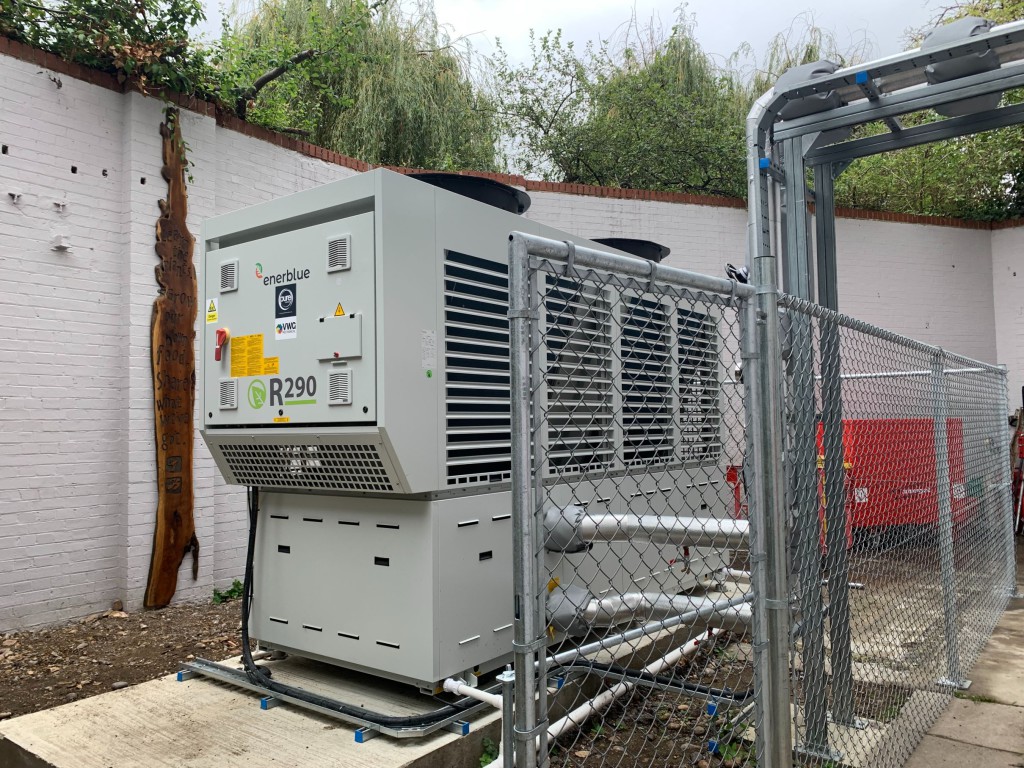Greenpeace and quiet

Pure Thermal has provided the latest ultra-low noise hydrocarbon heat pump to Greenpeace UK to provide a low carbon retrofit heating solution at its London headquarters.
Greenpeace has made a real statement of its commitment to sustainability by installing this propane (R290) heat pump at its 1920s office building in Islington, North London.
The new Palladium 85kW 120.4 unit, manufactured by the Italian company Enerblue, provides both space heating and hot water to the main office building, replacing its old gas boiler. This installation marks the UK launch of Enerblue’s ultra-low noise Palladium range of R290 based heat pumps, designed for commercial and industrial applications.
To launch the Palladium range Pure Thermal, the Enerblue UK partner/distributor, hosted an event at the Greenpeace offices on 3rd September. While a definite commitment to move away from fossil fuels was a given, Greenpeace studied available technologies and considered many possible heat pump manufacturers before choosing the Palladium range.
Based on the location being within a residential area with stringent nighttime noise levels the heat pump sound level was a very important and critical driver. Once the Palladium performance levels had been reviewed and its ultra-low noise levels had been modelled then it was clear to the Greenpeace team that the Palladium was the way forward in terms of meeting the demands of this application.







